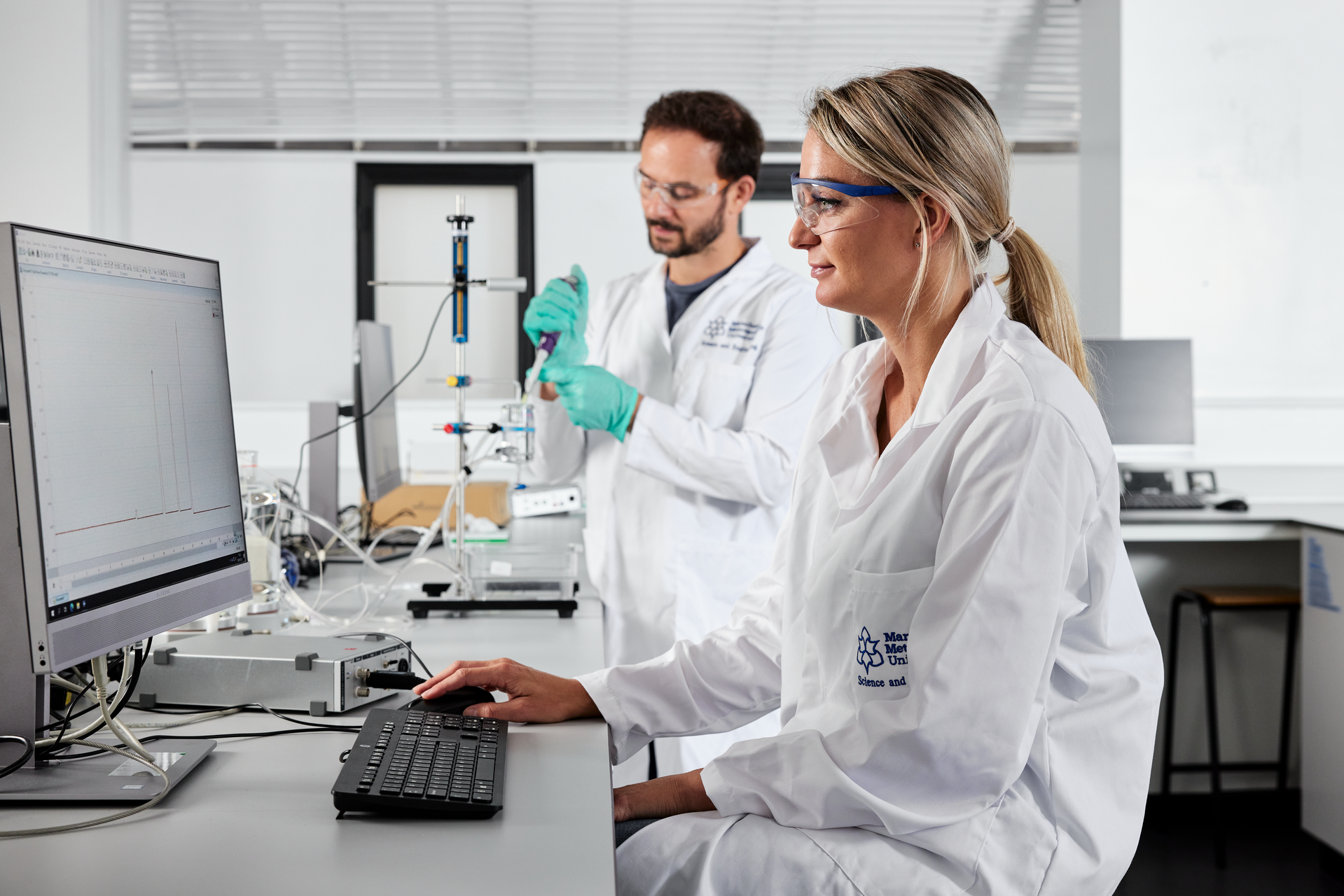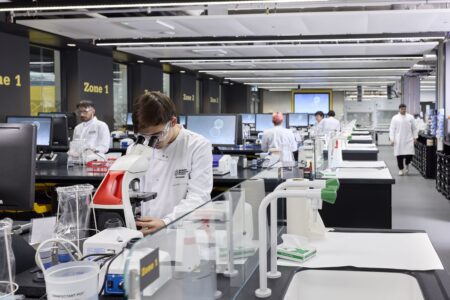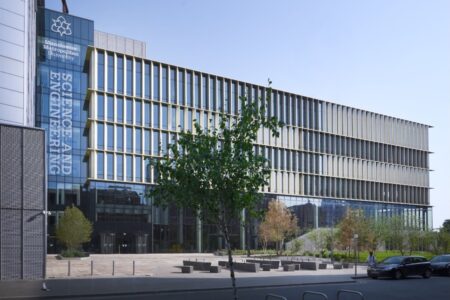What if a drop of your blood could reveal hidden details about your health? That is the potential of haematology today. Paired with advances in transfusion science, experts can now turn complex testing into speedy, accurate, and life-saving care.
At Manchester Metropolitan University, you can become a master of both fields through the MSc Haematology and Transfusion Science programme. That journey unfolds in one of the UK’s largest universities, home to over 44,000 students in the heart of Manchester, ranked among the UK’s top five student destinations (QS Best Student Cities 2026). The university itself holds an “outstanding” rating in the Teaching Excellence Framework 2023-27.
As part of the Department of Life Sciences, this MSc programme prepares you for roles in hospital science, the biomedical and pharmaceutical industries, public health, and transfusion laboratories. Accreditation from leading professional bodies, including the Institute of Biomedical Science, the Health and Care Professions Council, and others, ensures your training here meets the highest industry standard.

Whether you study full-time for a year or part-time for up to three years, the haematology and transfusion science master’s programme can open many doors for your future. Source: Manchester Metropolitan University
Become a multidisciplinary expert in haematology and transfusion science
Blood science plays a central role in diagnosing disease, guiding treatments, and saving lives. With the MSc Haematology and Transfusion Science degree, you gain both the advanced theoretical understanding and the practical techniques needed to work confidently in clinical and research settings.
You’ll start by building a strong foundation in biomedical science. Early modules will introduce analytical techniques and human disorders, giving you a broad understanding before you move into more specialised study. From there, your focus will shift to haematology and transfusion science. Across nine core modules, you’ll cover areas such as clinical haematology, haemostasis, and haematological malignancies, along with two transfusion-focused modules.
As your knowledge grows, specialist modules give you the chance to explore the subject in greater depth. You’ll examine the complexities of blood cells and diseases, study blood groups, learn about transfusion methods, and investigate the immunological aspects of blood. This progression leads into your research project, where you will apply what you have learned to a topic of your choice. To further prepare you for this, the Research Methods and Ethics in Biomedical Science modules develop your skills in methodology, analysis, and ethical decision-making.
Your independent project becomes the point where theory and practice come together. It allows you to explore an area that interests you most while also strengthening your ability to communicate scientific findings. Throughout the process, you’ll receive guidance on your proposal and reviews, ensuring you have the tools to produce a high-quality piece of independent research.
The university itself ranks 15th in the UK for the power of its health and biomedical research (REF 2021). Much of this work addresses urgent issues such as infectious diseases, cardiovascular conditions, stroke, and age-related decline. Being in this environment, you’ll get to see how research shapes healthcare practice as well.
The full value of the programme can be seen in the current careers of past students. Ava, an MSc Haematology and Transfusion alumna, says, “I learnt how to properly set up a research project and critique scientific papers, which is a skill I use all the time when working with new suppliers in my job. I learnt to question everything and how to seek out good research.”

The Dalton Building features open study and social spaces on every floor, enabling interaction among students and researchers across the faculty. Source: Manchester Metropolitan University
A space for you to push boundaries
To support research and learning, the Faculty of Science and Engineering has invested in the US$145 million Dalton Building. Located in the heart of the Manchester campus, spaces were specifically designed for the courses within the faculty, including the Department of Life Sciences, providing the ideal environment to harness science and technology for the future.
Here, active learning suites are fitted with specialist equipment. You’ll get to use portable microscopes, virtual dissection tables and tablets to explore anatomy and disease, and patient simulators to support learning about complex conditions. You’ll also get to step into the Superlab, a modern, open-plan laboratory that can host more than 190 students and researchers. What better place to exchange ideas, spark innovation, and build your professional network?
Sign up for on-campus or virtual open days and info webinars.
Follow Manchester Metropolitan University on Facebook, Instagram, X, YouTube, and LinkedIn.













